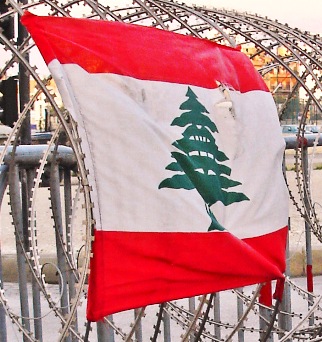Conflict in Lebanon? The Broader Dimensions Behind “STL”
The results of the Special Tribune for Lebanon could reignite civil war—or worse, conflict with Israel.
 My friend and former colleague, Omar Hossino, alerted me to some troubling news coming from Lebanon. The U.N. Special Tribunal for Lebanon (STL) is investigating the February 2005 assassination of Rafik Hariri, the former Sunni-Lebanese prime minister and father of current Prime Minister Saad Hariri.
My friend and former colleague, Omar Hossino, alerted me to some troubling news coming from Lebanon. The U.N. Special Tribunal for Lebanon (STL) is investigating the February 2005 assassination of Rafik Hariri, the former Sunni-Lebanese prime minister and father of current Prime Minister Saad Hariri.
The United States has suggested that top Syrian officials were implicated in the case, and recent media reports have suggested that militants in Hezbollah, the armed militia backed by Syria and Iran, might also be charged. Meanwhile, Hezbollah has warned that it would not accept a separation between the organization and supposed “rogue elements.” If indictments are brought against Hezbollah, one possibility is that it could fan sectarian tensions, as many Sunnis support Hariri (as well as a large portion of Christians) while many Shias support Hezbollah (Hariri’s Druze ally, Walid Jumblatt, seems to still be on the fence).
Another possibility is increased tensions between Israel and Lebanon. In August, Hassan Nasrallah, the leader of Hezbollah, displayed what he described as evidence of Israeli responsibility in the bombing. He has also painted the U.N. tribunal as an instrument deployed by Israel and the West in an effort to destroy his militia. It also appears that Hezbollah might already be preparing for a possible indictment—reports indicate that the group plans to seize government buildings—however, it’s debatable whether the group will resort to armed force. U.N. Secretary Ban Ki-moon has noted repeated violations of Resolution 1701, which ended the 2006 war between Israel and Hezbollah. The group has gained considerably more strength since the 2006 war with Israel.
The significance of the STL is what it tells us about the broader regional dimension. In September, Hariri issued an indirect apology for implicating Syria in his father's murder. This apology might undermine the STL’s findings, but it seems to be a byproduct of warming relations between Syria and Saudi Arabia. Syria’s motivation is to induce Riyadh to reign in Hariri. And recently, Saudi Arabia, Hariri's patron, forged a détente with longtime antagonist Syria, one of Hezbollah’s patrons, in the hopes of isolating Syria from Iraqi Prime Minster Nuri al-Maliki, whom Riyadh depicts as an instrument of Iran, another Saudi adversary.
One must wonder: What else will a Saudi-Syrian initiative have in store?
